Another Timbre TimHarrisonbre
at146 Ryoko Akama ‘Dial 45-21-95’ (2019)
A series of compositions developed from work at the Krzysztof Kieslowski archive
Commissioned by Another Timbre for Apartment House:
Anton Lukoszevieze (cello) Mira Benjamin (violin) Simon Limbrick (vibraphone & percussion)
Heather Roche (clarinet) Kathryn Williams (alto flute) Lucio Tasca & Cristian Alvear (guitar)
Philip Thomas & Kerry Yong (piano)
1 If your tooth hurts, it hurts the same - version 1 8:30
2 stay in the background 9:53
3 horse 1:25
4 a sense of coming back - version 1 9:45 youtube extract
5 I see everything as a failure 13:31
6 marble 1:28
7 I’m just so-so (for Iwo) 3:36
8 these very people 8:29
9 sugar cube 1:31
10 a sense of coming back version 2 5:06
11 If your tooth hurts, it hurts the same - version 2 10:36 youtube extract
Interview with Ryoko Akama
How did these pieces come about?
- When Simon Reynell commissioned me to write some pieces for Apartment House, it was at a time when I was more involved with sound installations and live performances than composition. But somewhere in my mind I had many ideas for writing scores for musicians again, though I didn’t yet know how to execute these vague and ungraspable ideas. At the same time, I was making a new installation the way they are for a group exhibition Associated Matters (Bothy Gallery, Yorkshire Sculpture Park, 2019), which gave me an opportunity to visit the archive of the Polish film director Krzysztof Kieslowski. I spent several days at In Situ in Sokolowsko, looking through his archive, and suddenly had the idea of creating a series of short compositions based on Kieslowski’s original sketches and manuscripts. In Situ had an old piano in the dining room. I sat down one day with the director's little baby Iwo on my lap. That was when the melody for the piece I’m just so-so was made. Everything else started from that moment.
Why the interest in Kieslowski?
- I was introduced to his works in my early 20s, initially the Decalogue and the Three Colours trilogy, followed by other films of his. He never described his works as something experimental or avant-garde, but for me, they were. In that period I watched a lot of world cinema alongside cutting edge experimental films from Austria and the UK. I like films that are slow, or tell stories of everyday lives. For me watching the story of a person next to me is more interesting than Hollywood action movies. Delivering such an ordinary plot is rather delicate and difficult, but some film directors achieve magical moments, as Kieslowski can. I love his particular usage of conversations and interactions, and the cinematography in his collaborations with other professionals such as Piotr Sobociński - colour, reflection, magnification, distance, perspective… His understanding of human gestures and habits in order to tell a story is extraordinary.
How does Kieslowski’s work affect the music?
- I don’t know how his work directly affects the music. But there are many things taken from Kieslowski that structured the scores. For example, I wanted this album to be like a collection of short stories with a coherent plot / theme. And the title comes from a conversation in one of my favourite films, Przypadek - Blind Chance (though Kieslowski always maintained that this film was a poor work). I wrote six compositions based on things that I found in the archive, and then added another three extremely short compositions (horse, marble and sugar cube), which are like the superfluous - unnecessary but eventually very necessary - objects that Kieslowski often added to his film scenes. I didn’t want to create music that would make someone jump with surprise, or start analysing why and how. The idea for these compositions was much simpler. The music here is like you are floating on the ocean, looking at clouds above your head. Your head is empty, with no thoughts. You are experiencing the clouds as clouds, as shape, as light, as colour, as body, as element. I wanted this album to address this sense of you, and this possibility.
Is this the first time that you have focused so much on pitch when composing, and how did that turn out for you?
- Yes, it’s the first time I’ve focused on pitch in this way, but I completely omitted any academic thoughts. I just pulled myself back to being a person who sits down at the piano for the first time and is mesmerised by the sound it makes. In transforming what I was looking at (the archive) into scores, I tried to be as straightforward as possible, loyal to what the objects from the archive look like, with a hope that I would be making music which I wanted to listen to over and over again.
Recently, I was at GMEA with Manfred Werder, Chiyoko Szlavnics, Marc Sabat, Rebecca Lane and Julia Eckhardt discussing our current interests, aesthetics and creative practice. When it was my turn, I talked about this, repeating that ‘I just wanted to make music’ - which has become such a baffling thing to say because nowadays, of course, it leads to the question ‘well, what is music?’ I tried to find another way to explain my thoughts, but I couldn’t. This was the way it was - just like the title of my installation the way they are! While writing the pieces I just had a basic and simple thought about ‘making’.
How was it working with Apartment House?
- To be honest, I was very scared of the recording sessions. I knew that they would perform these scores wonderfully, so the uncomfortableness didn’t come from a fear of failure of any kind. But I can never get used to sitting down as a composer with performers performing my works in front of me. It is beyond what an introverted person like me can take.
The scores were transformed into music more beautifully than I’d ever expected. I’m so grateful to the musicians. They are miracle performers. There was even a moment where I wanted to cry with joy. I was experiencing a power of music through simple melodies, like a scene from a summer in Japan with a wind chime making a tiny sound, or children humming a nursery rhyme. I really wanted to achieve this kind of pure listening experience. Thanks to Apartment House for making me emotional with my own music! No-one has ever done that before.
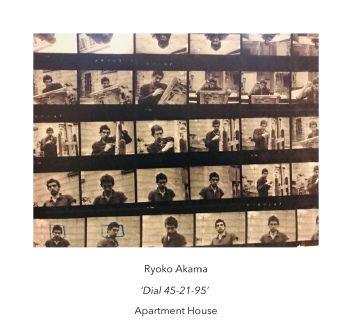
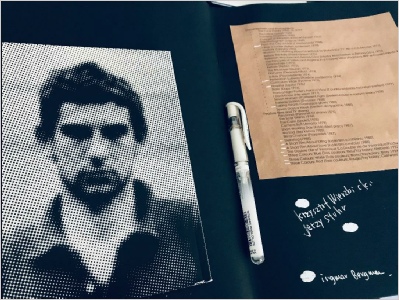
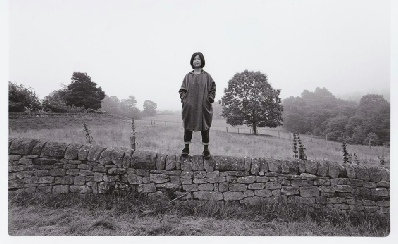
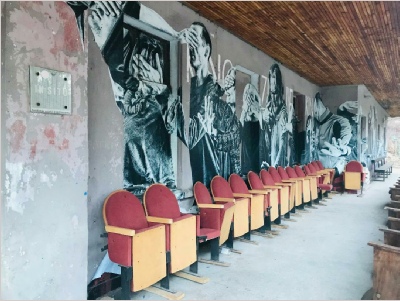
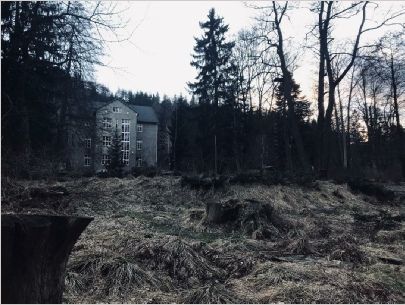
Photo by Anton Lukoszevieze
CD copies sold out, but you can still buy downloads from our Bandcamp page here